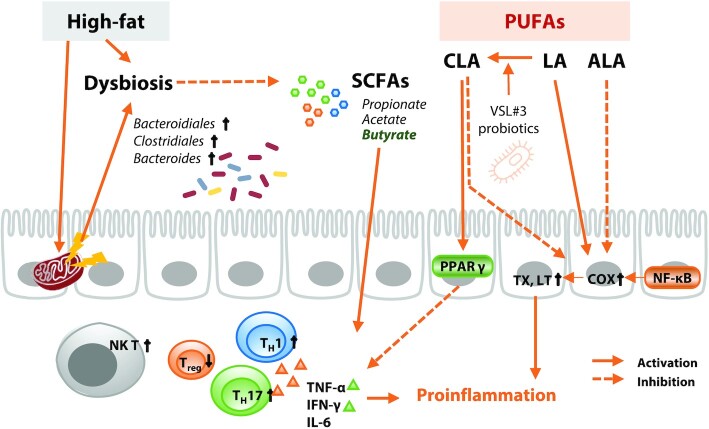FIGURE 4.
Fat and its interaction with gut microbiota in regulation of inflammatory bowel disease. A high-fat diet causes dysbiosis of the gut microbiota, which reduces production of SCFAs and causes an increase in NK T cells and a decrease in Treg cells, promoting the production of proinflammatory cytokines. Mitochondrial dysfunction in intestinal epithelial cells triggered by a high-fat diet reduces intestinal oxygen consumption and induces dysbiosis. LA and ALA have opposing effects on metabolism of arachidonic acid, regulating TX and LT production. However, LA can be converted to CLA upon ingestion of certain probiotics, leading to inhibition of proinflammatory cytokine production through increased expression of PPARγ. ALA, α-linolenic acid; CLA, conjugated linoleic acid; COX, cyclooxygenase; LA, linoleic acid; LT, leukotriene; NK T, natural killer T cell; PPAR, peroxisome proliferator–activated receptor; TX, thromboxane; TH, helper T cell; Treg, regulatory T cell.

